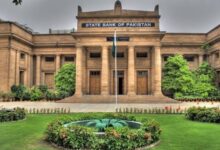Musharraf treason case: Law & Interior ministries ordered to provide details of trial-related expenses with 10 days
Islamabad: Pakistan Information Commission (PIC), in its verdict, has ordered the Ministry of Law and Justice and Ministry of Interior to provide the requested information to a citizen with intimation of this office within 10 working days.
In the verdict, the respondents are also ordered to put contact details of Public Information Officers designated under Section 9 of the Act on their websites as required under section 5(1)(h) of the Act.
PIC issued this verdict on the appeal filed by Mukhtar Ahmed Ali, a resident of Islamabad, against Public Information Officers/ Secretaries of Law and Interior for declining the requested information.
The respondents [Law & Interior ministries] are also directed to take immediate steps to proactively share through the website all categories of information mentioned in Section 5 of the Right to Access to Information Act 2017 and submit the compliance report to the commission by September 15 next month.
It is to mention here that Mukhtar Ali, along with the below mentioned details, had sought a list of the members of the prosecution team and relevant law firms engaged by the federal government for the trial of former President General (retd) Pervez Musharraf under Article 6 of the Constitution.
Besides, information regarding total out of pocket expenses like travel, lodging and meals etc, total fee paid or reimbursed to individuals and firms and certified copies of the contracts signed with the members of the prosecution team and relevant law firms were sought by the Appellant.
However, the relevant ministries declined the requested information.
According to the Appellant, the requested information was about the use of tax-payers money in relation to a matter of public importance. Therefore, its disclosure is not likely to cause any harm to public interest, adding that it was in the interest of the public as people wanted to know where the government bodies spent their taxes money.
Commission Observations
The Commission, during hearings, observed that the reliance of the Ministry of Law and Justice on Cabinet Division notification[issued in 1993] is in conflict with Article 19-A of the Constitution of Pakistan.
The Law and Justice ministry was directed to produce the case record through hearing notice in the instant appeal. However, it didn’t produce the said notification before the commission so that it could determine its validity, if any, to deny the requested information.
The Commission also observed that the Law ministry also challenged powers vested in the Commission under Section 20(1)(d)(i)(ii) of the Right to Access to Information Act 2017.
Meanwhile, the Commission observed that the Interior ministry didn’t respond to the Interim Order of the Commission. The Interior ministry also didn’t present its arguments before the Commission for its consideration despite given reasonable time to present its case.
The Commission was in consensus that the respondents didn’t follow the procedure under this law.
The Commission concurs with the point raised by the Appellant that the people of Pakistan wanted to ensure that their taxes through contacts signed by public bodies were well spent and that is why contracts signed by a public body are declared public records under Section 6 (c) which is as under, the commission observed.
It is to mention here that the Law Ministry, in compliance of the Order of the Commission, letter dated March 2, 2020 stated that the professional fee in criminal cases is paid by the concerned division. Therefore, the custodian of the requested information is the Interior ministry.
The Appellant then filed another appeal to the Commission against the Ministry of Interior. This verdict is based on both appeals of the Appellant.



